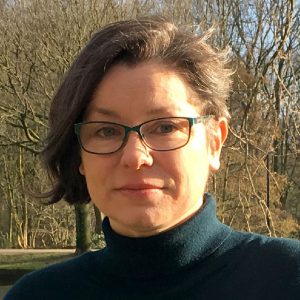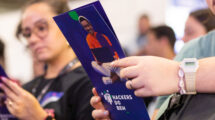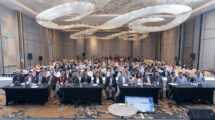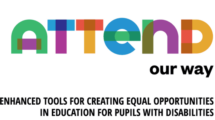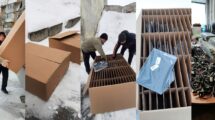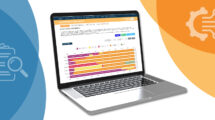On 1 January 2021, Gitte Julin Kudsk became CEO of DeiC (Danish e-infrastructure Cooperation). She has worked with digital infrastructure since 2000, when she started as a project manager in UNI-C, which became part of DeiC in its establishment in 2012. As the head of secretariat and communications, Gitte was very active in NORDUnet and GÉANT activities and well versed in the Danish ministerial and political landscape. Half a year into her new role, we asked about her goals for DeiC and its relationship with the GÉANT community.
What qualities and experiences do you bring to the role of DeiC CEO, and to DeiC’s national and international activities?
Internationally it’s my network; I’ve been around for many years, and I know a lot of people. Nationally, I’ve spent a long time talking with universities and know how they organise themselves in the e-infrastructure area. As head of secretariat, I had an important role in the strategic planning towards the new DeiC, which will be the ‘place’ where the universities actively collaborate. I really appreciate collaboration. My ability to involve people and organise this is very important.
“The new DeiC” – what is the plan?
Today DeiC is a virtual organisation, with everybody employed at the Technical University in Lyngby. We are going to be a company owned by the universities. The DeiC name will stay, but the ‘C’ will become ‘Consortium’. Operation of the network will stay at the TU, but the networking, data management, and high-performance computing services will be offered through DeiC. We will need our own staff to follow international developments, as well as have knowledge of the infrastructures, but we will be no more than 20 people. It’s now my responsibility to create this new company.
What will this change mean for DeiC’s international relationships?
The strategy stated that Denmark would be more active internationally and this is in DeiC’s mandate. As DeiC will be small, we will need the Danish universities to be more active also, which is quite new. The relationship between DeiC and the TU will remain close, and we will be able to represent each other internationally, but DeiC will stay as the official Danish representative in GÉANT.
What are your top three priorities for the coming year?
Of course, one is to get the new organisation established and acting according to the national strategy. COVID-19 hasn’t been helping and a lot of people have been anxious about the future. We will ensure we have synergies between national and international developments, with DeiC being active where possible and keeping the universities involved. We will also get more involved in EOSC and EuroHPC activities. That doesn’t mean we forget about GÉANT – we are quite involved in GÉANT already and that will continue.
You have participated in GÉANT Community Programme working groups over the years. What do you see as the benefits of those?
I have been both a long-term member and a chair of the marketing communications group SIG-Marcomms. I was also in the NORDUnet communications team. The main benefits are getting to know people and understanding the differing ways that people and NRENs in different countries view infrastructures and how to use them. But also, that we mainly have the same challenges and goals. And that the same kind of diversity exists among the universities within each country too. These are the important lessons I can use now in DeiC’s national and international relationships.
More broadly, what are your views about the benefits of GÉANT membership?
Collaboration inside GÉANT is very important – the way we work together to achieve common goals. Having all the countries represented means that decisions are based on a broad range of views, cultures, and backgrounds. Any country negotiating alone at EU level would have only its own perspective to rely on but being part of this community opens your eyes to other perspectives, which can make you stronger. And sometimes it’s good to look not only at what seems important for you, but also for a majority of countries. Through NORDUnet we have one Nordic voice in GÉANT, and GÉANT does the same in having a European R&E networking community voice towards the EU. Collaboration is very important and GÉANT is the place to do that.
What would you like readers to know about you more personally? Surprise us!
I think I’m not a very surprising person! What might surprise some though, is I have a very strong heart in the Scout community and spend a lot of spare time in that world. In the Scouts, collaboration is very important; you are not just yourself but are part of a team. A lot of the way I do things as a manager comes from the tools I’ve learned in the Scouting movement.
This article is featured on CONNECT37! Read or download the full magazine here

